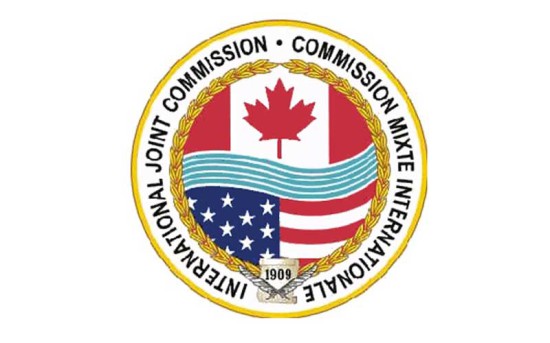MANITOULIN—With the final deadline for comments on the International Joint Commission’s (IJC) adaptive management plan last week, the Manitoulin Area Stewardship Council used the opportunity to make its concerns known regarding the ‘do nothing’ option the IJC report suggests for the dropping Upper Great Lakes water levels.
“Manitoulin Island is the largest freshwater island in the world, and as Islanders we know with absolute certainty that our lives, our fortunes, and our sacred places are utterly dependent on the surrounding sweet-water sea,” the MASC comment for the IJC begins. “But while Manitoulin is in certain respects unique, it is representative, and our concerns are shared by many others: along the North Channel, in the Cheneaux Islands, the Straights, Traverse Bay, the Bays De Noc, Washington Island, Green Bay, Georgian Bay, and around much of the shoreline of Lakes Michigan/Huron.”
MASC quotes the IJC’s Water Levels Fact Sheet of March 2013, which states that, “Water level extremes can be addressed in two ways-either by managing water levels through dams or other structures, or by managing how we respond to the impacts of those water level changes.”
“The implication here is that with adaptive management, regulatory structures might not be necessary,” MASC states in its comment. “While ‘adaptive management is not the same as adaptation,’ adaptation is a significant component of adaptive management, and adaptation can be construed as a reactive strategy rather than a proactive one.”
MASC points to two statements in the plan they consider in need of adjustment. The first, that “the IUGLS Board recognized that the solution for damage reduction (due to extreme low water in Lakes Huron and Michigan) lies with further water level and flow management through constructing new structures in the system and/or better management of the coastal zone…”
“We fail to see how the word ‘or’ can be included in this statement,” MASC states. “In other words, we maintain that there is no equivalence between managing levels and flows through regulatory structures, and, for example, beach or wetland ‘pilot projects’.”
Secondly, the statement in the IJC’s plan, that “an adaptive management process might be used to trigger future study or implementation decisions for new structures. Nevertheless, exploratory institutional and technical analyses during the IUGLS indicate that new structures and required construction processes are costly, can be controversial, and may take years or even decades to complete,” MASC also deems as a cause for concern. MASC replies, “If an adaptive management process facilitates implementation decisions, then the process would seem promising. If it means only ‘better coastal and floodplain management,’ then it is, in our opinion, a distraction from and evasion of the real problem.”
“The assertion that new structures and construction processes are costly begs the question, ‘compared to what?’,” MASC asks the IJC. “The State of Michigan recently allocated $21 million for dredging in select harbours around the state. This is a temporary and ecologically questionable solution and it represents only a fraction of the dredging that will be needed around the Lakes Huron and Michigan basin. Already the costs associated with extreme low water are accumulating-besides dredging; reduced cargoes, declines in tourism, declines in recreational and commercial fishing, falling property values, and the like. Many billions of dollars are at stake.”
“It is cheaper to fix the problem at its source rather than to try to adapt at thousands of locations around the Lakes Huron/Michigan basin,” MASC writes. “Canadian and American governments would split the cost of remediation, making it not only affordable but miniscule compared to the cost of doing nothing.”
MASC also requests that the IJC include the investigation of the impact of factors such as hydraulic fracturing (fracking), high capacity wells, water mining within the Great Lakes basin, as well as water conservation strategies, large and small.
“We know that climate change may alter the Great Lakes beyond recognition-may for all intents and purposes destroy them, and that we have to adapt to whatever eventuality,” MASC’s submission concludes. “However, we also believe that since the problems facing the Great Lakes are anthropogenic, they are by and large repairable. We believe that the best science and the best engineering must be applied with the utmost integrity across the Great Lakes basin. We see the Adaptive Management Plan as an important component of that effort. That effort, however, must begin with or lead quickly to restoration of Lakes Huron/Michigan to something like its natural state. We believe there must be control structures established at both St Clair and Niagara (joining those already in existence at Superior and the St. Lawrence) and that a Michigan/Huron Board should be established to join the Superior, St. Lawrence, and Niagara Boards.”
MASC’s comments were one of 42 published on the IJC site from individuals, groups and organziations.
“Support for regulation of Lakes Michigan/Huron and a regulatory structure in the St. Clair River was strong and wide-ranging, with only two comments in opposition,” explained MASC member Jim Nies, of Wisconsin and Kagawong. “Most comments expressed the need for immediate action to restore Lakes Michigan/Huron to the more natural state that existed prior to dredging in the St. Clair River.”
The group Great Lakes United called the need for a restoration strategy on the Great Lakes “critical” and that both American and Canadian governments need “the IJC’s recommendation for action now.” Great Lakes United also asked for a specific study to be carried out immediately, and by both countries, as to the potential, timeline and associated costs to implement structures in the St. Clair River (dams, sills, weirs, etc.).
The group FLOW (For Love Of Water), based out of Traverse City, Michigan calls for the adoption of public trust principles in conjunction with the Guiding Principles and the Boundary Waters Treaty. “All stakeholders, including the IJC, federal agencies in both countries, state governments as trustees, cities, businesses, and citizens as beneficiaries-have a fundamental right to insist that the public trust interests in the waters and their habitats and ecosystem are sustained for present and future generations,” FLOW states.
The Council of Great Lakes Governors also weighed in, asking for commitments from the federal government (US) in advance of work being secured. “It is unclear what if any federal resources are being committed, including support for the work of the proposed structures and what resources may be provided the states, provinces or regional entities to assist with meeting expectations,” the governors write.
The Nature Conservancy writes, “a broadening of perspective lays a solid foundation for balancing uses and implementing water level management approaches that mimic more natural flows and fluctuations.” The conservancy sees the need for a balance in interests and explains that functional ecological systems, “facilitate attainment of other interests,” for example a healthy coastline plays a role in the prevention of erosion and flooding.
The organization Restore Our Water International (ROWI) told the IJC that, “At no time should adaptive management be used as a surrogate for the restoration of the natural water level ranges on Lakes Michigan and Huron that have been lowered by water loss caused by increased conveyance capacity in the St. Clair River. That conveyance increase has been a significant factor over the last 14 years of crisis low water levels on these lakes.”
“The US and Canadian governments must now, confronted by climate change impacts, develop the ability to retain water in all the Great Lakes,” ROWI continues. “Currently, Lakes Michigan and Huron are suffering from the double blow of climate change and uncompensated anthropogenic changes to the conveyance of the St. Clair River. Local adaptive management is the antithesis of a bi-national federal solution to this ongoing loss of water from these two important lakes.”
Les Cheneaux Islands Waterways Restoration in Michigan simply stated, “It is time to return water levels to an historic healthy range, and stop giving our water away.”
Alicia McCutcheon with files from Jim Nies




